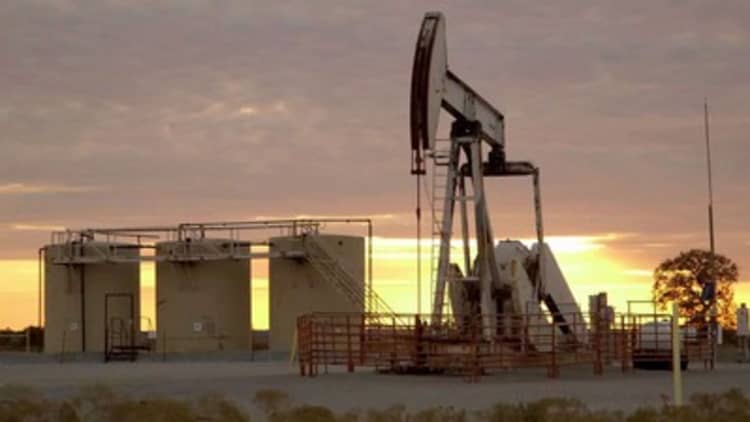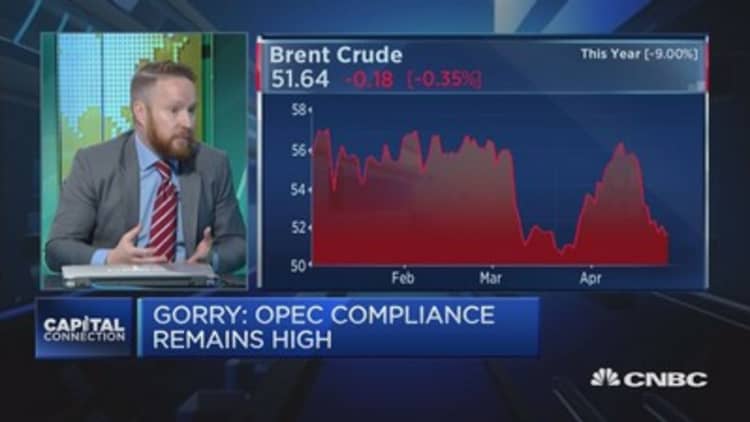
Conventional crude discoveries plummeted to a record low last year, one of the world's top energy policy advisers said.
And it likely won't get any better any time soon as energy companies gave the green light to the lowest number of new drilling projects in more than 70 years, according to the Paris-based International Energy Agency.
The IEA has warned that insufficient investment could lead to a tightening of global oil supplies. While that might seem like a welcome change in today's oversupplied market, prices could spike sharply higher in the coming years if drillers do not tee up enough new production to satisfy global demand.
Investment levels remain depressed, and exploration spending is poised to fall for a third straight year in 2017, IEA said in a new report.

Energy companies have canceled or delayed $1 trillion in planned projects by one count, as oil prices remain mired in a slump going back to the summer of 2014. The price collapse was sparked by a boom in U.S. production and compounded by OPEC's refusal to cut output during the first two years of the downturn.
But now IEA says the pendulum could swing the other way, largely due to a drop in conventional oil projects, or those that don't require certain advanced drilling methods.
IEA's analysis finds:
- Oil discoveries totaled 2.4 billion barrels in 2016, versus the average of 9 billion barrels in the last 15 years.
- Energy companies sanctioned 4.7 billion barrels of conventional oil resources for development, down 30 percent from 2015.
- Firms reached a final investment decision on the lowest number of projects since the 1940s.
Offshore drilling projects account for a big part of the pullback. Last year, just 13 percent of conventional oil projects that got the go-ahead were offshore. That compares to an average of 40 percent of projects between 2000 and 2015.
Those figures do not bode well for President Donald Trump's goal of increasing offshore drilling in the U.S. Outer Continental Shelf. He is expected to sign an executive order on Friday aimed at rolling back offshore drilling limits imposed by President Barack Obama.
While conventional oil activity is in freefall, U.S. shale drilling is on an upswing, thanks to American companies halving the cost of production, IEA notes. U.S. crude production has recovered to more than 9.2 million barrels a day, the highest level since late 2015.
Producers in the U.S. shale patch rely on an expensive method called hydraulic fraction in which they inject water, minerals and chemicals at high pressure into wellbores to break up shale rock and release oil and gas. More efficient "fracking" will help these producers grow output by 2.3 million barrels a day by 2022, IEA projects.
But shale cannot make up the shortfall in conventional oil development: Conventional sources account for 69 million barrels a day of the current global output of 85 million barrels a day.
"Every new piece of evidence points to a two-speed oil market, with new activity at a historic low on the conventional side contrasted by remarkable growth in US shale production," Dr. Fatih Birol, IEA's executive director, said in a statement. "The key question for the future of the oil market is for how long can a surge in US shale supplies make up for the slow pace of growth elsewhere in the oil sector."



